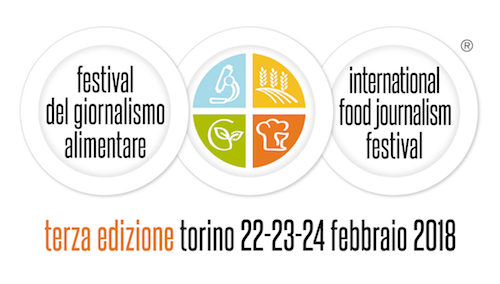
Food can be related to science, health, security, politics, economy, agriculture and industry. Also, it can be identified with fashion, entertainment, luxury, tourism and performance. It is the subject of controversy and round table discussion. Again, it is, at the same time, the cause of diseases and international frauds while, on the other hand, it represents a moment of conviviality, relax, brotherhood among communities and culture.
The International Food Journalism Festival to be held on February 22-24, 2018, in Turin (Centro congressi “Torino Incontra”, via Nino Costa 8), was born with the intent to unite all these innumerable worlds and to describe them in a direct, easy and precise way, thanks to the participation of experts in the field, nutritionists, firms, associations, simple citizens and, above all, journalists, bloggers and communicators.
In the framework of this three-days series of events and activities, CMCC researcher Monia Santini (IAFES Division) will take part in the panel discussion entitled “Agricoltura e cambiamenti climatici: i campi non sono più gli stessi”.
The panel will explore how media are reporting about climate change impacts on agriculture.
Climate change impacts on agriculture are causing new strategies for food production and supply in developed countries, but also migration and poverty in developing countries. Climate change is indeed a driver of human migration acting in conjunction with other factors, such as poverty, conflicts and social instability.
M. Santini will illustrate in particular the main results of the report “Food & Migration. Understanding the geopolitical nexus in the Euro-Mediterranean”, a study realized by the Barilla Center for Food and Nutrition Foundation (BCFN), in collaboration with MacroGeo and the CMCC Foundation, focused on the nexus between food and migration in the trans-mediterranean areas, one of the main climate change hot spots.
The CMCC Foundation dealt with the chapter “Climate change and human migrations” focused on climate vulnerability in the area of interest, looking at trends recorded in the past and at future projections. The study highlights that not only the area of origin of trans-Mediterranean migrations (African countries and Middle East) will be increasingly affected by climate change hazards impacting water and food systems, but also European countries, that is the countries of transit and destination of migrants.
More in detail, climate and its variability can affect water availability so that the fulfilment of crop water requirement can be at risk while inducing stress and impacts on crop yields in case of temperature extremes.
Therefore effective policies for migration management can’t neglect the nexus food-migration, including the potential role of climate change.
The results underlined the need for reshaping the agricultural system to adapt to climate change through a decision support system (DSS) that takes into account the uncertainty linked to expected climate trends, including extreme events. More synergies among adaptation and mitigation strategies, i.g. changes in dietary regimes and sustainable agriculture, will be needed in the future.
For more information, visit the official page of the event.
Read also the article “Climate change and human migrations, understanding the geopolitical nexus in the Euro-Mediterranean” on TEC, the CMCC’s blog.


